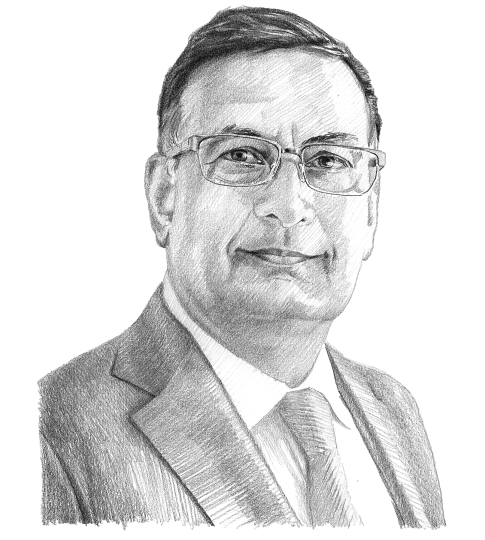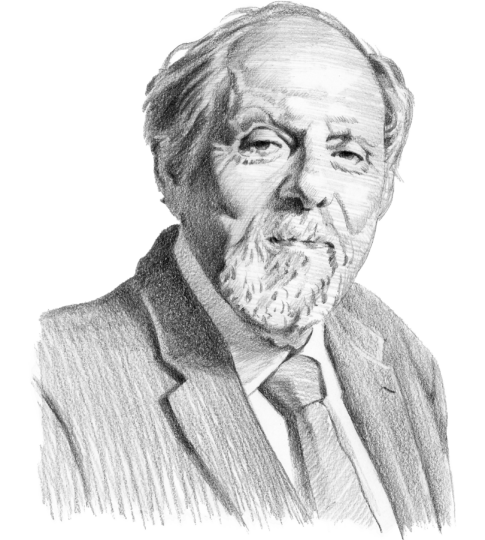Russia’s smoke and mirrors
Opaque, cutthroat politics and internal instability make it harder than ever to decipher the Kremlin’s motives.

In a nutshell
- Russia is once again betting on secrecy and manipulation to confound the West
- Power struggles within the Kremlin also contribute to Russian unpredictability
- Assessing the likelihood of Russia using nuclear weapons is increasingly difficult
With Russia’s full-scale war against Ukraine, relations between Moscow and the West have dropped to lows not seen since the early 1980s, when the Cold War was at its coldest. It has once again become nearly impossible to see behind the smoke and mirrors of Kremlin obfuscation.
Purges and poisonings
Something important is clearly going on. People in key positions have been found dead, allegedly after drinking poisoned tea. Others have fallen out of high-floor windows. Senior generals have been purged from the defense ministry, and scientists that were part of developing Russia’s hypersonic weapons are being prosecuted.
Given that many of those falling out of windows have been linked to banking, money may have been the motive behind their deaths. But threats would likely have been sufficient to part them from their wealth. It may also be that they had sensitive information, perhaps about wealth belonging to important people. The purges at the notoriously corrupt Russian Ministry of Defense may have only been meant to clean things up, but it is also possible that the true motive was to ward off a pending military coup. Meanwhile, several scientists have been accused of passing state secrets to foreign countries and charged with high treason – possibly to cover up corruption in higher ranks, or to shift the blame for the poor performance of the Kinzhal hypersonic missiles.
Winston Churchill once quipped that: “Kremlin political intrigues are comparable to a bulldog fight under a rug. An outsider only hears the growling, and when he sees the bones fly out from beneath it is obvious who won.” Given the magnitude of the stakes involved in the further development of relations between Russia and the West, observers can hardly sit back and wait for the bones to fly out. But even insiders close to the Russian regime appear clueless.
Beyond the obfuscation
One point on which the West urgently requires clarity is whether Russia is serious in its repeated threats about the use of nuclear weapons. The option of countering Western aggression with limited nuclear strikes has long been part of official military doctrine if Russia were threatened, but never before has the notion been bandied about so frivolously as in recent years.
In June last year, long-standing Kremlin hawk Sergei Karaganov suggested that for Russia to prevail against the West it must move decisively up the escalation ladder. If Western governments fail to back down, he argued, Russia “will have to hit a bunch of targets in a number of countries in order to bring those who have lost their mind to reason.”

© Getty Images
Given that such rhetoric has been effective in promoting self-deterrence among key Western powers, it caused a bit of a stir in early June this year when Russian President Vladimir Putin suggested that Russia would not need to use nuclear weapons to prevail in Ukraine. It could be taken as a sign that the Kremlin is coming to terms with a growing realization that the West is shedding its fear of nuclear escalation. But it could just as well be more smoke and mirrors.
A mere week after Mr. Putin made his statement, Belarusian President Alexander Lukashenko said he would not hesitate to use his nuclear weapons (provided by Russia) to defeat an aggressor. According to a recent poll by Russia’s Levada Center, more than a third of Russians believe that the use of nuclear weapons could be “justified” in the war with Ukraine.
Playing with Western fears and deliberately fanning misunderstandings of Russian intentions is what the Kremlin does best. During the war against Ukraine, Moscow has relied on this skill over and over again. Russian clandestine influence operations in Western countries have been particularly effective. Pro-Russian sentiment is proliferating both in the media and in a host of political parties.
When Hungarian Prime Minister Viktor Orban began his tenure as head of the European Council in July by traveling to Moscow, Mr. Putin may have felt himself to be on the winning side, even without nuclear blackmail. But the poor performance by the Russian armed forces suggests that significant setbacks remain a distinct possibility. If faced with defeat, Moscow could opt for nuclear strikes.
Assessing whether Russian nuclear blackmail is a bluff is further complicated by the possibility of a leadership change in the Kremlin. While it is hard to decode how the current regime views the matter, it is even harder to predict what a different regime might be ready to do, if cornered.
A leader past his prime
President Putin suffers from increasing paranoia concerning his own personal safety. It has long been fair to assume that he is haunted by fears of ending up in a storm drain, like Muammar Qaddafi, at the end of a rope, like Saddam Hussein, or with bullets in his back, like Nicolae Ceausescu. It is also fair to assume that such fears have been accentuated by the humiliation he has suffered from his botched attempt to swiftly conquer Ukraine.
Facts & figures
Assassinations of high-profile Kremlin critics
- Alexander Litvinenko (2006): Former KGB agent and Putin critic, poisoned with radioactive polonium-210 in London. A British inquiry suggested Putin approved the killing, but Russia denied involvement.
- Anna Politkovskaya (2006): Journalist critical of the Kremlin, shot and killed in Moscow. Her murder caused widespread outrage over journalist safety in Russia.
- Alexander Perepilichny (2012): Russian whistleblower aiding in exposing a money-laundering scheme, found dead while jogging in the UK. His death raised suspicions of foul play.
- Yevgeny Prigozhin (2023): Leader of a Russian mercenary group, presumed dead following a private jet crash north of Moscow. He had recently led a brief rebellion against Putin.
- Alexei Navalny (2024): Prominent opposition leader, initially poisoned with Novichok in 2020. Died in a penal colony while serving a 19-year sentence.
Any reasonably objective assessment must conclude that the Kremlin’s attempt to take over Ukraine in three days has been an utter disaster. In a country marked by accountability in government, the leader would have been forced out. Mr. Putin is clearly not going to be removed from office, either peacefully or through force. A rare opportunity for his removal played out in June last year, when the head of the Wagner Private Military Company, Yevgeny Prigozhin, sent his troops marching toward Moscow. Flight Radar showed numerous private jets taking off from Moscow airports, as both President Putin and others with means opted to flee the city.
While the incident did reflect genuine fear, the likely motive was a turf battle over access to resources, rather than a move to take power. Exactly how the crisis was resolved will probably never be known. Needless to say, Prigozhin ended up dead and what remains of his empire has been incorporated into the Kremlin’s toolbox.
Turning to rogue states
Given how poorly the war against Ukraine has been prosecuted, and how many senior military leaders have been killed, there is likely anger brewing in the ranks, which may lead to decisive action. Mr. Putin’s rapidly deteriorating standing as a tough leader suggests that there is blood in the water and that sharks may be attracted to a kill. His transformation from 2021 onwards is striking.
President Putin reached the zenith of his power in the runup to the full-scale invasion. It was not enough that Western leaders were humiliating themselves, vainly seeking dialogue with him. At a meeting only days before the launch of the invasion, he also took the opportunity to publicly humiliate some of the most powerful men in the country. Key figures from the various power structures were shown stuttering and trembling before their boss.
His last stand as a fearsome leader was in May this year. Having just been reelected for a fifth non-consecutive term as president, he made two important moves. One was to announce a reshuffle of his inner circle and the other to launch a major offensive against the Kharkiv region in Ukraine. While the latter turned out to be yet another failure, leaving tens of thousands of dead Russian soldiers for little gain, the jury is still out on the former.
The most important feature in the reshuffle was that Minister of Defense Sergei Shoigu was relieved from duty and replaced by economist Andrey Belousov. Some took this as a sign that the Kremlin was ready to boost its war effort by cracking down on corruption in the military and by taking a firm grip on the budget. The problem with this interpretation is that the parallel purges of the top military brass, amid a losing war, will cause a further deterioration in already poor leadership. That Mr. Shoigu, who has a reputation as a long-standing friend of Mr. Putin, was moved to head the powerful Security Council suggests that a circling of the wagons is a better interpretation.
The nadir of Mr. Putin’s standing was in mid-June, when he visited North Korea to beg for military assistance from its leader Kim Jong-un. It was his first visit to Pyongyang since he took power in 2000, and the images of Mr. Putin and the international pariah shown as equals must have sent shockwaves of humiliation through the Russian elite. Those impressions were brought home in early July, during a meeting of the Shanghai Cooperation Organisation in Kazakhstan.
More by Stefan Hedlund
- The rise and fall of Russia’s Gazprom
- Belarus walks a tightrope with Russia
- Azerbaijan extends its influence beyond the South Caucasus
In an uninspired presentation on how Sino-Russian relations have never been better, Mr. Putin looked uncertain, repeatedly clearing his throat and nervously looking up at Chinese President Xi Jinping. Presumably angered both by the botched Russian war against Ukraine and by the dangers entailed in the prospect of military cooperation between Russia and North Korea, Mr. Xi adopted a condescending attitude, looking down his nose and smiling triumphantly while his vassal engaged in ritual kowtow.
There are additional indications that the Kremlin has bigger problems than outside observers may think. Mr. Putin is feverishly seeking to garner support for a Russian peace plan before Ukraine receives serious air power and air defense. He also seems ready to round up anyone who is willing to join in his war against the West, including a new partnership with the Taliban.
Scenarios
Most likely: President Putin remains in power while war slogs on
Barring natural death or a black swan event, this would mean more of the current increasingly empty bluster, allowing the war against Ukraine to drag on without conclusion. Obsession with his own personal security will enhance the bunker mentality, preclude the use of nuclear weapons and ensure that Russia is reduced to a shrinking role in a circle of like-minded rogue regimes.
Less likely: A conspiracy succeeds in forcing regime change
How and by whom a change of leadership in the Kremlin might be instigated is beyond guesswork, simply because few if any insiders would be able to answer. Potential opposition groups are many but divided. A coup would be more likely to result in fierce infighting that causes a fragmentation of the state than in a viable new regime.
Least likely: A hardliner takes over
A new regime in Moscow is not likely to be led by any of the known hardliners but rather by some hitherto unknown entity, much like Mr. Putin himself when he came to power. The outcome would be associated with domestic repression of the North Korean kind and with enhanced military cooperation with other authoritarian regimes. Threats of nuclear strikes would become legion.
While this grim scenario cannot be excluded, the most likely outcomes remain those of protracted decline under Mr. Putin and accelerated fragmentation under a coup regime, with the odds favoring the former.
For industry-specific scenarios and bespoke geopolitical intelligence, contact us and we will provide you with more information about our advisory services.









